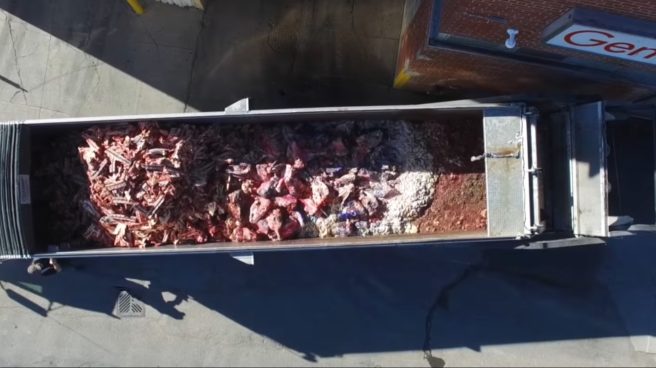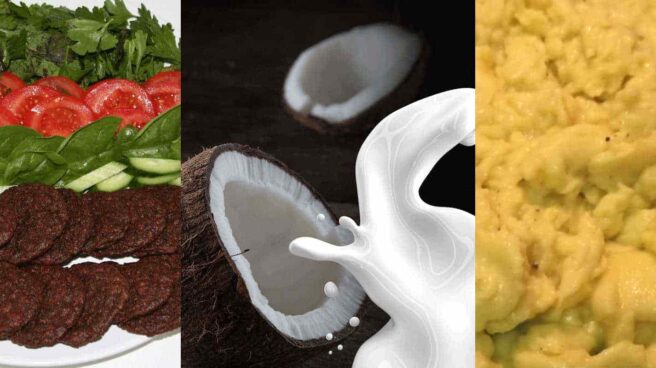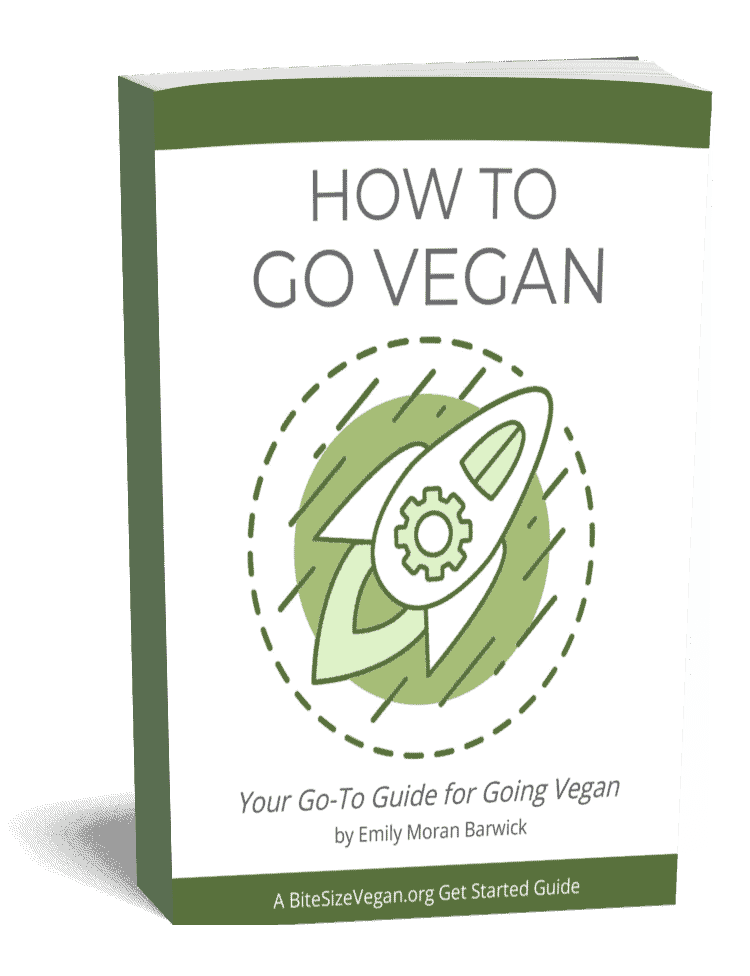Is sugar vegan? This may not be a question many would even think to ask but the fact is most commercial sugar is filtered through bone char, the literally charred bones of animals- cows in the case of the sugar industry. So what’s a vegan to do?
The question of sugar’s “vegan-ness” is one that usually comes from the already vegan-conscious—because what non-vegan is checking into the potential animal ingredients in seemingly “un-animaly” things, really?
Well, the answer to this question is more complicated than a simple yes or no as it depends on a number of factors. One of these is how you define the term vegan. If you are speaking purely from a food ingredient standpoint then, yes sugar is vegan. It does not contain animal products. However, if you’re coming at it from a process perspective, then most commercial cane sugar is not vegan.
That leads us to the second factor of determining the vegan-ness of sugar. And that is the sugar’s source. There are two sources of commercial sugar: sugar cane and sugar beets. Beet sugar is always vegan but cane sugar is sometimes filtered through a substance called bone char. And just what is bone char? It’s literally the charred bones of animals—cows in the case of the sugar industry. According to Jeffrey Robinson, technical director of American sugar refining, to create bone char, bones are sun-dried and incinerated for 12 hours at more than 700 degrees Celsius. during the burning process, all organic matter that may be present—including viruses, bacteria, and proteins—is destroyed, leaving only an inert granular substance that is 10 percent elemental carbon and 90 percent calcium hydroxyapatite.
So why the heck are we using the charred bones of cows on our sugar? Well for some reason, we like our sugar to be white and sugar naturally has a brown tint to it. So, many decades ago we clever humans devised a way to use the charred bones of animals to take the color out of our sugar. Bone char acts like a crude filter and is most often used first in cane sugar refining. It is what’s called a ‘fixed bed adsorption’ filter and is the most efficient filter for removing colorants, most frequently amino acids, carboxylic acids, phenols, and ash. The sugar then passes through other filters during the refining process, like activated charcoal, or an ion exchange system.
Just how much cow is in your sugar? According to Paul Caulkins, the corporate quality assurance manager of imperial/savannah foods, very little bone char can be obtained from a single cow, “since only the dense bones of the animal, such as the pelvic bones, can be used.” In fact, he says the average 1,500 pound cow will produce only 9 pounds of bone char. With addition figures from Caulkins, Jeanne Yacoubou, the research director at the vegetarian resource group ran some figures and concluded that the bones of almost 7,800 cattle are needed to produce the bone char for one commercial sugar filter.
Now as a quick note, it’s important to also acknowledge the environmental impact of sugar cane. While I’m not going to go into an extensive breakdown, as that is another video entirely, the sugar cane industry, like any agricultural commodity, has led to water pollution from fertilizers and effluents, industrial waste, soil erosion and degradation, habitat loss, and the death of countless marine species. Some of the most biodiverse regions on the planet have been cleared for sugarcane production, particularly the threatened tropical ecosystems near the equator. A 2004 report by World Wildlife Fund, shows that sugar may be responsible for more biodiversity loss than any other crop. (Also check out this report from the Food and Agriculture Organization of the United Nations for additional information.)
Should vegans avoid sugar at all costs? Honestly, this depends on you. Personally, I believe that we should always be fully educated and aware of where our food comes from and how it is made, particularly when it is produced at the expense of others’ lives. However, I would shy away from focusing on the bone char issue too intensely, and instead place my energy towards avoiding and eradicating the main animal products industry.
When we are no longer slaughtering 150 billion sentient beings every year for our consumption, we won’t be so pressed to find new and different ways to profitably use their byproducts. This is also my response for products that while vegan ingredient-wise will state they were produced in a facility that processes milk. The solution isn’t necessarily boycotting these potential cross-contaminates but stopping the dairy, egg and meat industries as a whole. If we aren’t senselessly killing animals and stealing their secretions, we won’t have to worry about it getting in our food.
In their extensive FAQ section, the nonprofit Vegan Outreach highlights the importance this focus has on creating new vegans stating, “we recommend that vegans concentrate their attention on the most obvious animal ingredients and the true meaning of veganism. In our experience, concentrating on processing or on trace ingredients can make a vegan diet appear exceedingly difficult and dissuade people from adopting it.”
Of course this doesn’t mean that we avoid confronting every aspect of the animal products industry and our continued exploitation of other beings, nor that we simply don’t make any effort to eliminate products that aren’t produced with compassion. I’m simply saying that our focus should be where we can make the greatest impact.
Luckily there are numerous sugar options that are 100 percent vegan. As I stated earlier, any beet sugar is always bone char free as beet sugar requires as less extensive filtering process that never included bone char. Unfortunately most mainstream sugar industries will source half of their sugar from beets and half from cane. However, all organic sugars do not use bone char, nor do natural raw sugars like demerara or turbinado sugar such as sugar in the raw. It’s important, however, to make the distinction that commercial brown sugar is not the same as natural sugar. Commercial brown sugar is simply refined white sugar with molasses added for color and flavor.
There are also sugar companies that on the whole do not use bone char. And of course organic sugars are going to be using a more sustainable method of agriculture not involving pesticides. please refer to the links below for lists of bone char free brands and other resources.
Now if love to hear from you. Do you avoid bone char derived sugar? Or is this not even something on your radar? Let me know in the comments!
— Emily Moran Barwick







Dear Emily,
Thank you so much for yet another awesome nugget. I knew that most commercially produced sugar was non-vegan and tried to avoid it but I didn’t know the details and am very happy to know them now. And knowing them makes me more committed to avoiding non-vegan sugar, although it helps me a lot to be reminded that it’s important to sweat the big stuff. I find you and your research simply amazing and so very helpful in daily life. Your nuggets always brighten up my day, even though you talk about sad truths. Thank you so very much for all you do.
I am looking forward to the next nugget. I love how committed you are while staying loving and compassionate to all. Your work gives me hope.
Much love,
Friderike
you’re so very welcome Friderike and thanks so much for your kind words :) i’m so touched to hear that i brighten your day! that’s such a gift. this comment truly made MY day so thank YOU for that! it means a lot to hear that my work is having an impact. thank you so much for watching!
Hi Emily,
this video made me glad I’m in the UK. Apparently the 3 main sugar companies here don’t use bone char in their white sugar processing and 2 of them don’t use bone char at all. After reading a few vegan blogs mentioning bone char I tweeted the company I buy from to check and they said the only product I need to avoid is their icing sugar but that’s because it has egg in it. As a side issue, I try and buy fairtrade sugar when I can get hold of it.
Thanks for the video :)
yes i believe bone char is banned in the EU and AU but pre-made products from other countries will still contain bone char sugar. and fairtrade is always a good choice! you’re so welcome ;)
Is it all EU countries that have banned it??
I thought it was just “some” European countries that had.
If you have any information on this I’d be very grateful to narrow down the list of countries I can buy products from. But then again the UK is part of the EU and they are still allowed to use it so who knows?!?
Coming from Australia it was easy but now I’m living in the States and it’s so much harder!
I’m not terribly sure. I would have to look into it!
Hi there, Emily! I’m always so amazed after watching your genius ‘nuggets’ of information whether it’s you being you which is so darling — forceful yet peaceful — or listening to Gary’s interviews which always pounds the truth home, if you will. ;) You’ve been a godsend to me as I’ve fairly recently adopted a vegan life after being vegetarian for over a quarter century, never quite getting the correlation between true commitment to compassion and just eating vegies AND animal secretions. HUGE correlation. I moved from southern ca to central ca and found myself in the middle of the effing dairy belt, ‘cattle’ ranching, ‘chicken farms’ and highways constantly full of trucks transporting innocents off to slaughter. Man, it didn’t take me long to GET it — loud and clear! I thank God for all like minded people like you and everyone truly making a difference. And, yes, I’m a believer in God and I’m thinking He isn’t exactly pleased with His ‘children’ who kill His beautiful creations for appetite, sport, entertainment, et al. But all we can do is pray and hope that more and more people become abhorred at what’s on their plate and live compassionate lives. Thanks again so much.
thank you so much for sharing this Lesley! i’m honored to be a part of your journey and so happy to hear my videos are making an impact for you. i lived in Iowa for 9 year and hope to return- it slaughters more pigs than any other state. but i think there’s something to be said about fighting from ground zero! and we certainly can use all the prayer we can get! :)
Another great flick Emily.
I don’t use sugar…i use stevia. The only time i eat sugar is when it’s in a Bday cake or such. I buy only organic, thus good to know they don’t bone-char organic sugar.
I admire that you can talk so fast and still speak clearly and pleasantly.
Cool that you were born with the passion (Tino interview)…a lightworker that knows her purpose.
Thanks for your intelligent research and presentation…all wrapped up with humor on top. Go girl! I’m your fan.
thanks so much Juli and thank you for sharing your experience :) and i’ve tried slowing down my speech but apparently i still rattle it out quickly! thank you so much for your kind words and i’ll continue to try to live up to your vision of me!
Just wanted to mention that for baking purposes Redpath (is it available outside Canada?) is vegan. They say they are on their website. Personally I use maple syrup, what can I say, I’m Canadian.
thanks for the info! and way to stick to your heritage ;)
Hi folks, I haven’t seen any comments on coconut sugar. Would this be vegan as well?
Cheers
it technically is but there is a large sustainability issue